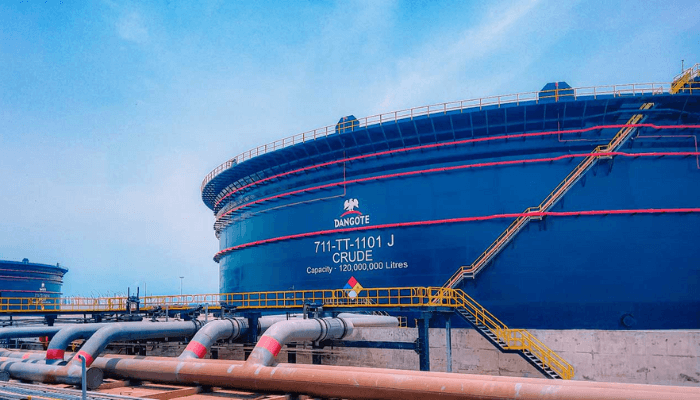The Ongoing Saga: Dangote Refinery vs. PENGASSAN – A Power Struggle Unfolds

As the sun rises over Lagos on this crisp Sunday morning, the energy sector’s most gripping drama continues to unfold: the escalating battle between Aliko Dangote’s Petroleum Refinery and the Petroleum and Natural Gas Senior Staff Association of Nigeria (PENGASSAN). What began as a shocking mass layoff of all Nigerian workers on September 26, 2025—less than 24 hours after 90% joined PENGASSAN—has morphed into a multi-layered saga of labor rights, corporate ambition, and national interest. With tensions simmering for three days, the story now weaves through legal threats, political maneuvering, and a workforce teetering on the edge of rebellion, all against the backdrop of Nigeria’s fragile energy renaissance.
The Spark: A Layoff That Lit the Fuse
The saga ignited on September 25, 2025, when over 8,500 of the refinery’s 9,400 Nigerian employees—engineers, technicians, and support staff—signed up for PENGASSAN membership, a historic move to secure better wages, safety protocols, and job stability amid the refinery’s rapid expansion. The timing was strategic: the refinery had just rolled out 4,000 CNG trucks, raising concerns about labor conditions in a facility processing 650,000 barrels per day and exporting 4 million metric tonnes in Q3. But by late September 25, Dangote Group stunned the nation with an internal memo announcing a “reorganization” that terminated all Nigerian staff by September 26, citing automation and efficiency drives. The refinery’s statement suggested a leaner workforce with expatriate hires, a move that fueled accusations of union-busting and sparked outrage.
PENGASSAN’s National President, Festus Osifo, immediately labeled it “retaliatory vengeance,” while NUPENG’s General Secretary, Afolabi Olawale, warned of an indefinite strike. The unions’ noon deadline on September 26 passed without resolution, setting the stage for a labor showdown that threatens to halt Nigeria’s fuel supply—a lifeline for a nation where the refinery accounts for 85% of refined petrol.
The Escalation: Legal and Political Chessboard
By September 27, the conflict deepened. PENGASSAN filed a lawsuit against Dangote Group in the National Industrial Court, seeking an injunction to reinstate workers and demanding N50 billion in damages for “unlawful termination.” Legal experts, including human rights lawyer Femi Falana, argue the layoffs violate the Labour Act and the Petroleum Industry Act (PIA), which mandate fair labor practices in the sector. Dangote’s legal team, led by Ogwu Onoja, countered with a defense of “operational necessity,” submitting evidence of a $200 million automation upgrade planned since August 2025—a claim union leaders call a “convenient excuse.”
Politically, the government is walking a tightrope. President Tinubu convened an emergency meeting with Labour Minister Nkeiruka Onyejeocha and Petroleum Minister Heineken Lokpobiri on September 27, urging mediation. Sources within the Presidential Villa told Punch that Tinubu fears a strike could derail his administration’s energy self-sufficiency narrative, especially with external reserves at $42.1 billion and pump prices steady at ₦835/litre. However, insiders hint at pressure from international partners like the IMF, which reportedly backs Dangote’s automation push to enhance global competitiveness—potentially pitting national interests against worker welfare.
The Workforce Rebellion: A Movement Takes Root
The laid-off workers, many from Lagos host communities, have transformed into a grassroots movement. On September 27, over 5,000 gathered outside the refinery gates, chanting “No Work, No Fuel!” and waving PENGASSAN banners. Social media erupted with #SaveDangoteWorkers trending at 2.5 million mentions, with viral videos of workers’ families pleading for justice. A 34-year-old engineer, speaking anonymously to Vanguard, said, “We built this refinery with our sweat—now they replace us with foreigners?” The sentiment has galvanized support from civil society groups like the Nigeria Labour Congress (NLC), which vowed a nationwide strike if talks fail by Monday, September 29.
Dangote Group’s response has been a mix of defiance and outreach. On September 27, the company announced a $10 million severance package and a “reapplication window” for 20% of the workforce, but only under non-union contracts—a move PENGASSAN rejected as “slave labor terms.” Rumors of 2,000 Indian expatriates arriving to fill roles have further inflamed tensions, with PENGASSAN alleging a breach of local content laws.
The Energy Sector Ripple: A Nation on Edge
The stakes are astronomical. Nigeria’s energy sector, buoyed by Dangote’s $20 billion investment, has cut import costs by $10 billion annually since January 2025. Yet, a prolonged strike could slash output, pushing petrol prices to ₦950/litre and risking inflation spikes above 21%. The NMDPRA warned of potential fuel queues by mid-week if negotiations collapse, while industry analysts like Chinedu Okeke note, “This could undo years of progress if not handled with care.”
Globally, the refinery’s export market—shipping 4 million metric tonnes to the U.S. and Europe—faces scrutiny. Vitol and Shell, key buyers, issued statements on September 27 urging “stable operations,” hinting at contract reviews if disruptions persist. Femi Otedola, who recently praised Dangote on X, tweeted on September 27 at 08:45 PM +03, “Aliko, the workers’ energy built your dream—don’t let it fade. Let’s find a middle ground.”
The Deeper Layers: Ambition vs. Humanity
Beneath the surface, this saga reflects a clash of visions. Dangote, Africa’s richest man, aims to position his refinery as a global swing supplier, leveraging automation to rival Houston and Rotterdam. His $200 million tech upgrade, including AI-driven process controls, aligns with a future where labor costs are minimized. Yet, this ambition collides with Nigeria’s social fabric, where jobs are lifelines in a 33% unemployment economy. PENGASSAN’s fight isn’t just about wages—it’s a stand against a corporate model that some fear could marginalize local talent, echoing colonial-era exploitation narratives.
Whispers of political undertones also swirl. Some analysts suggest Dangote’s move aligns with Tinubu’s pro-business agenda, potentially sacrificing labor for FDI. Others point to DAPPMAN’s lingering influence, with depot owners quietly cheering a weakened workforce to regain market leverage—a subplot Otedola’s recent X posts may indirectly address.
The Road Ahead: A Tipping Point
As of 06:30 AM +03 on September 28, 2025, the crisis teeters on a knife-edge. The National Industrial Court’s next hearing is set for October 1, but a strike could preempt that. Dangote Group faces a PR nightmare, with its stock dipping 3% on the Nigerian Exchange on September 27. The government’s mediation team is drafting a compromise—possibly a hybrid workforce with union representation—but success hinges on Dangote’s willingness to bend.
This isn’t just a labor dispute; it’s a test of Nigeria’s energy soul. Will the refinery’s gleaming towers stand as symbols of progress or monuments to lost livelihoods? The next 48 hours will decide. Stay tuned as this epic unfolds—because in the heart of Africa’s energy revolution, every move counts.
This ongoing story is compiled from union statements, court filings, industry reports, and real-time X discourse as of 06:30 AM +03 on September 28, 2025. Updates will follow as the situation evolves.

💽 💹 Portfolio Notification: +2.5 BTC detected. Access here → https://graph.org/Get-your-BTC-09-04?hs=89b654c87f65a5cd747073685e8f4216& 💽
October 13, 2025 at 3:26 ambbuiji